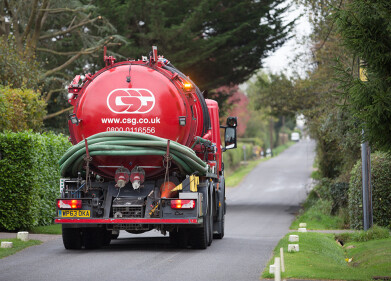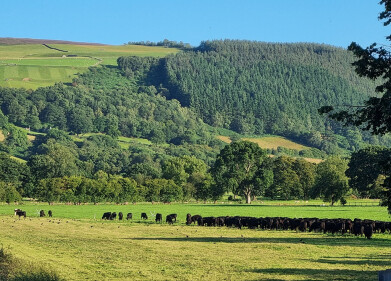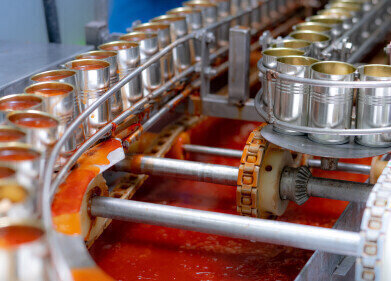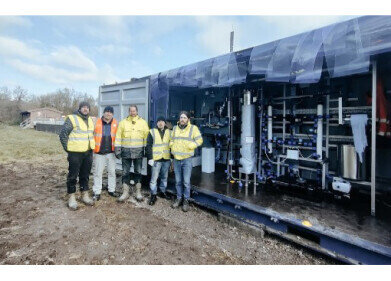Wastewater treatment
Plant Systems for the Dosing of Ferric and Glycerol at Northern Irish Wastewater Treatment Works
Mar 22 2010
Gee & Co (UK) has recently supplied three packaged plant systems for the dosing of Ferric and Glycerol at Ballynacor & Armagh Wastewater Treatment works – including an innovative Glycerol plant which was designed, constructed and installed in less than twelve weeks.
The three packaged plant systems were delivered as part of Northern Ireland Water’s Project Omega, a £122 million capital investment wastewater treatment and sludge disposal scheme for Northern Ireland, and one of the most advanced wastewater management schemes of its type in Europe.
Glen Water Ltd (a joint venture company between Veolia Water and Laing O’Rourke) is responsible for the design, build and finance of the project, and will maintain and operate the new and enhanced facilities over a 25 year period. One of the largest Public Private Partnerships ever delivered in the UK, Project Omega processes approximately 20% of the region’s wastewater treatment and all of its sludge disposal, ensuring full compliance with stringent EU regulations on water quality. At Ballynacor all discharges from the works into Lough Neagh will meet the consent requirements of the Urban Waste Water Treatment Directive. Project Omega has also been specifically designed to help protect public health and safeguard the environment, creating cleaner beaches around the North Down/Ards coastal area.
Of the six existing wastewater facilities, located at Bullay’s Hill, Seagoe, Armagh, Richill, Ballyrickard and Ballynacor, the latter has been upgraded to become the main sewage treatment centre for existing flows for the catchment areas of Portadown, Lurgan and Craigavon.
Gee and Company designed, built and installed a single 30 m3 ferric dosing unit for the Armagh site where it is used for phosphate removal; plus a twin 48 m3 (96 cubic metre) packaged containerised dosing system for the site at Ballynacor; also for dosing Ferric for phosphate removal plus, a separate 30 m3 unit for Glycerol storage and dosing at the same site. The Glycerol system, which is used for denitrification, was delivered in under 12 weeks, and utilizes Signal Series 400 stepper motor chemical metering pumps which offer an 800:1 turn down, while the Ferric systems employ Signal Series 200 EMP 3 and EMP 4 motor driven electronic pumps.
The project team originally intended to dose Methanol into the anoxic zones of the activated sludge plant (ASP), however two issues made this an unpalatable option: firstly Methanol is highly explosive in nature and is a dangerous substance within the meaning of DSEAR (2002) legislation; and secondly the lead time for the design, construction and installation of the related plant would have been between 20 and 30 weeks, owing to the high level of site fabrication work required and the need for dry weather conditions to enable this.
The team decided to explore an alternative approach to the use of Methanol. Gee and Company was able to introduce them to an organisation already considering the use of Glycerol - a by-product of bio ethanol – in a similar application. Glycerol is a non-toxic, inert organic compound which is much less harmful to the environment, cheaper in use, and with a far smaller carbon footprint than Methanol.
For the treatment plant itself, project engineers worked directly with Gee, whose solution was to cut lead times by utilising its market leading experience in the design and build of packaged chemical dosing plant. Gee packaged plant dosing systems are designed to suit specific client needs and greatly reduce the site civils work entailed. Gee packaged plant units comprise the chemical bund which houses the chemical storage tanks and dosing skid, with the motor control centre being housed in a separate but attached kiosk.
The packaged plant units are manufactured and fully hydraulically and electrically tested at Gee’s Birmingham UK factory prior to despatch. They are delivered to site on low loaders, and on arrival off-loading, positioning and installation are managed by Gee’s trained engineers who supervise all the final connections leaving the plant “ready to run”. As a result, site installation time and therefore cost, are greatly reduced.
By combining the learning from this reference application with Gee’s 30+ years’ experience in the sector, an innovative solution was devised which not only addressed the issues posed by the use of Methanol but also dramatically reduced the overall project costs and created the possibility of a “virtuous environmental circle” where the safe by-product of one process is used to replace a dangerous component of another.
Events
Feb 16 2025 Kampala, Uganda
Feb 26 2025 Chennai, India
Feb 26 2025 Tulsa, OK, USA
WATERTECH CHINA (GUANGDONG) 2025
Mar 05 2025 Guangdong, China
Mar 11 2025 Amsterdam, Netherlands














